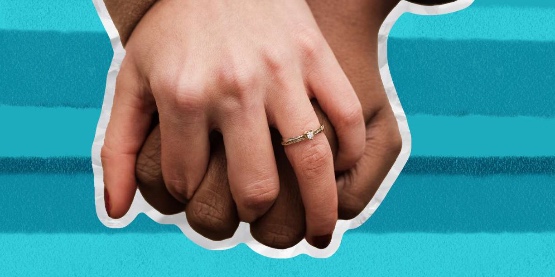
When people enter a committed relationship, they bring with them all their past experiences, their individual beliefs and values, their family beliefs and values, their future goals, sometimes their children, their ex-partner. In general, these differences may not seem that big at first, or the two may find themselves caught up in the novelty and excitement of the relationship and don't want to spoil it by pointing out its flaws.
There is a common denominator in relationship conflicts and that is the inability to communicate effectively with your partner. But before we explore communication skills, let's define some common conflicts that often arise in relationships:
-Honesty
-Pride and shame
-Don't Blame Yourself
-Power control
-Finance
-Providing Justice and Equality
-Narcissism
-Competition power
-Anger and Resentment
-Revenge
-Cheat
When a conflict arises in your relationship, do you both reach a mutual resolution for the conflict, does it remain unresolved for various reasons, or does the conflict arise at a later date during another dispute because it remains unresolved from an earlier conflict? There are barriers that interfere with effective conflict resolution, often occurring when a person has difficulty managing their emotions, often clouding their judgment and ability to communicate effectively with another. Here are a few examples to help you determine whether you or your partner is being unfair when trying to resolve conflicts that arise in the relationship:
-Inability to listen to the other person,
-Yelling or yelling to gain control over the conversation or person
-Displaced frustration or anger, inability to determine whether you are angry at your partner, the issue at hand, or something else unrelated ---
- Use of derogatory language and intimidation
- Not being able to take responsibility for your role in the conflict, always blaming the other
- Inability to express your thoughts or feelings with words
-Often moving away from the issue at hand, focusing on the initial conflict or argument -bringing up “other issues” in the relationship instead
-When communicating with others, it is very important to know what your primary communication style is.
Three common communication styles are Passive, Assertive, and Aggressive.
Am I a passive communicator? People who communicate passively often:
-He prioritizes the needs of others before his own.
-Soft talk/quiet
-Assertiveness/inability to express own needs and desires.
-Allows others to take advantage of them, is easily manipulated.
-May have a lack of confidence and low self-esteem.
-Poor eye contact with others
People who communicate confidently often:
-Advocates for themselves (will express needs, wishes, feelings, beliefs)
-He listens to others while talking and does not interrupt them.
-Respects their own or others' beliefs and rights.
-Shows a confident stance while speaking.
-They make and maintain good eye contact.
-Is willing to compromise and negotiate with others.
Am I an aggressive communicator? People who often communicate aggressively:
-Uses criticism, dominance, and humiliation to control conversations.
-Speaks too loudly or in a bullying manner.
-He gets frustrated very easily.
-They are disrespectful towards others.
-Does not listen to others.
-Unwilling to compromise/negotiate with others.
One of the biggest sources of conflict that couples face is not spending enough quality time with each other. Making time for a simple night out can lead to an argument so heated that the couple doesn't want to go out at all. Therefore, when the topic is brought up regarding couples counseling, these same time barriers may make it difficult to participate in couples counseling or may be used as a reason for not participating.
One of the other reasons why couples resist counseling is the fear of exposure to a complete stranger. Many couples fear that their partner will 'tell' on them and they may face embarrassment or judgment from the counselor or be double-teamed by their partner and counselor.
What causes conflict between couples?
Damage in relationships mainly comes from partners not wanting or knowing how to deal with differences in views or behavior that differ from what they would choose.
The solution may be to go to counseling together. Couple therapists help clients get to the root of the conflict. Then, they teach clients how to express themselves, practice listening, and resolve conflict together. They can give you tips on how to fulfill your own desire without ignoring your partner's wishes. Because therapists often use methods based on scientific research, these methods are research-proven and work very well for most couples.
You can apply to the therapy process, which has advantages such as conflict resolution and a clearer understanding of each other's personality structure, whenever and wherever you want. UseTappy online therapy service is always there for you whenever you need couple therapy help!
